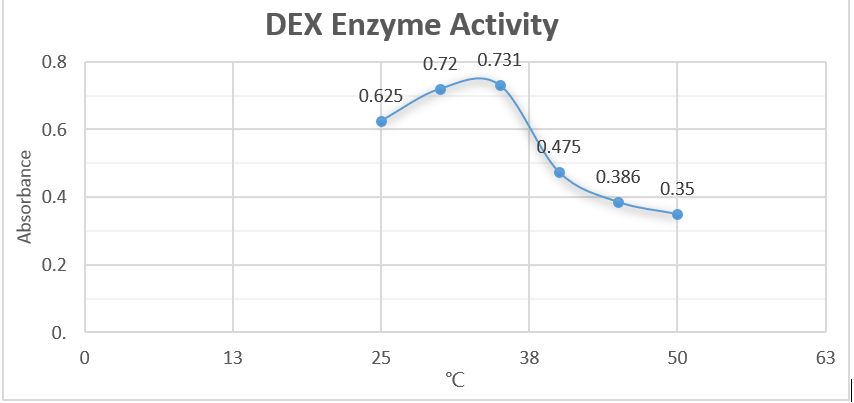Cordeliali (Talk | contribs) |
|||
| Line 13: | Line 13: | ||
| − | <div id=" | + | <div id="sec2"> |
<div id="page"> | <div id="page"> | ||
<h1>Experiment Data</h1> | <h1>Experiment Data</h1> | ||
| Line 19: | Line 19: | ||
<img src="https://static.igem.org/mediawiki/2018/c/cc/T--SMS_Shenzhen--Shiyan1.png" width="100%"> | <img src="https://static.igem.org/mediawiki/2018/c/cc/T--SMS_Shenzhen--Shiyan1.png" width="100%"> | ||
<img src="https://static.igem.org/mediawiki/2018/8/8a/T--SMS_Shenzhen--ResultTop.jpg" width="100%" > | <img src="https://static.igem.org/mediawiki/2018/8/8a/T--SMS_Shenzhen--ResultTop.jpg" width="100%" > | ||
| + | <h1> </h1> | ||
<h1>Analysis</h1> | <h1>Analysis</h1> | ||
<p style="font-size:18px"> The experiment 1 illustrates the relationship between the concentration of glucose and the absorbance of the solution with DNS colorant. By using linear regression, we constructed a function with glucose concentration (μmol) as the x-axis and the ab-sorbance as the y-axis. </p> | <p style="font-size:18px"> The experiment 1 illustrates the relationship between the concentration of glucose and the absorbance of the solution with DNS colorant. By using linear regression, we constructed a function with glucose concentration (μmol) as the x-axis and the ab-sorbance as the y-axis. </p> | ||
| Line 28: | Line 29: | ||
</div> | </div> | ||
| − | <div id=" | + | <div id="sec3"> |
<div id="page"> | <div id="page"> | ||
<img src="https://static.igem.org/mediawiki/2018/0/02/T--SMS_Shenzhen--%E9%85%B6%E6%B4%BB%E5%9B%BE%E7%89%87.PNG" width="100%"> | <img src="https://static.igem.org/mediawiki/2018/0/02/T--SMS_Shenzhen--%E9%85%B6%E6%B4%BB%E5%9B%BE%E7%89%87.PNG" width="100%"> | ||
| Line 35: | Line 36: | ||
<p style="font-size:18px"> From the first half of the graph, we can clearly discover the linear relationship between enzyme concentration and the absorbance. Data suggest that as the concentration of enzyme becomes greater, the relative absorbance increase proportionately. This result justified our assumption. However, the latter half illustrated a negative-related relationship. We suspected that we didn’t use enough substrate to allow the decomposition reaction. Also, we assumed that excessive concentration of enzymes will negatively affect the reaction rate.</p> | <p style="font-size:18px"> From the first half of the graph, we can clearly discover the linear relationship between enzyme concentration and the absorbance. Data suggest that as the concentration of enzyme becomes greater, the relative absorbance increase proportionately. This result justified our assumption. However, the latter half illustrated a negative-related relationship. We suspected that we didn’t use enough substrate to allow the decomposition reaction. Also, we assumed that excessive concentration of enzymes will negatively affect the reaction rate.</p> | ||
| − | |||
| − | |||
| − | |||
| − | |||
| − | |||
| − | |||
</div> | </div> | ||
</div> | </div> | ||
Revision as of 02:18, 18 October 2018

Experiment Data



Analysis
The experiment 1 illustrates the relationship between the concentration of glucose and the absorbance of the solution with DNS colorant. By using linear regression, we constructed a function with glucose concentration (μmol) as the x-axis and the ab-sorbance as the y-axis.
In the experiment 2, we measured the stability of sucrose and dextran, as well as pH stability. We let the reaction take place in the hot pot set at 100℃. We observed that dextran has a poor hot stability. Moreover, the sucrose will decompose spontaneous-ly under the acidic condition while heat doesn’t affect the decomposition of sucrose.

Analysis
From the first half of the graph, we can clearly discover the linear relationship between enzyme concentration and the absorbance. Data suggest that as the concentration of enzyme becomes greater, the relative absorbance increase proportionately. This result justified our assumption. However, the latter half illustrated a negative-related relationship. We suspected that we didn’t use enough substrate to allow the decomposition reaction. Also, we assumed that excessive concentration of enzymes will negatively affect the reaction rate.

